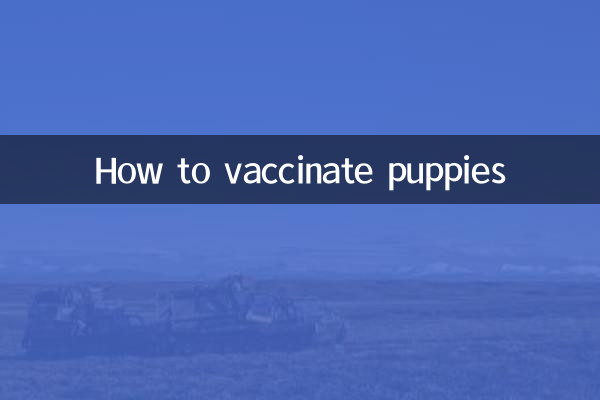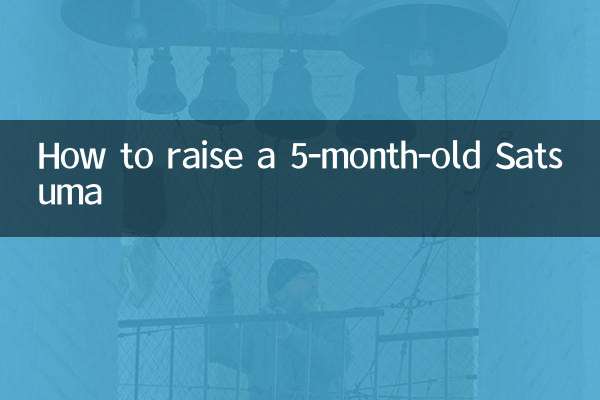How to vaccinate puppies
Dog owners all know that vaccinations are one of the important measures to protect the health of puppies. However, many novice owners are not clear about the timing, types and precautions for puppy vaccinations. This article will combine the hot topics and hot content on the Internet in the past 10 days to give you detailed answers to questions about puppy vaccines.
1. The Importance of Puppy Vaccines

Vaccines are one of the most effective ways to prevent canine infectious diseases. Through vaccination, the risk of your puppy contracting canine distemper, rabies and other fatal diseases can be significantly reduced. Here are several common dog vaccines and their effects:
| Vaccine name | prevent disease | Vaccination time |
|---|---|---|
| canine distemper vaccine | canine distemper | First vaccination at 6-8 weeks of age |
| rabies vaccine | Rabies | First vaccination over 3 months of age |
| parvovirus vaccine | parvovirus infection | First vaccination at 6-8 weeks of age |
| Canine Parainfluenza Vaccine | canine parainfluenza | First vaccination at 6-8 weeks of age |
2. Puppy vaccination schedule
Puppy vaccinations need to be carried out according to a certain schedule to ensure that the vaccines are most effective. The following is the recommended vaccination schedule:
| age | Get vaccinated | Things to note |
|---|---|---|
| 6-8 weeks old | Canine distemper, parvovirus, canine parainfluenza and other core vaccines | The first vaccination requires a booster interval of 3-4 weeks. |
| 10-12 weeks old | Second core vaccine | boost immunity |
| 14-16 weeks old | The third core vaccine | Complete basic immunity |
| Over 3 months old | rabies vaccine | Some areas have legal provisions |
| 1 year old | Core vaccines and rabies vaccine booster | Reinforce every year or every 3 years thereafter |
3. Precautions for vaccination
1.Health status:Before vaccination, it is necessary to ensure that the puppy is in good health and has no symptoms such as fever or diarrhea.
2.Deworming:It is recommended to deworm before vaccination to improve the effectiveness of the vaccine.
3.Observations after vaccination:After vaccination, the puppy needs to be observed for allergic reactions, such as vomiting, difficulty breathing, etc.
4.Avoid bathing:Avoid bathing your puppy for a week after vaccination to prevent colds or infections.
5.diet:Maintain a normal diet after vaccination and avoid sudden food changes.
4. Frequently Asked Questions
Q: Is it normal for a puppy to have a slight fever after being vaccinated?
A: Yes, some puppies may experience mild fever, loss of appetite and other symptoms after vaccination, which usually recover on their own within 1-2 days. If symptoms persist or worsen, seek medical attention promptly.
Q: Can the vaccine be vaccinated in advance?
A: It is not recommended to vaccinate in advance because premature vaccination may affect the effectiveness of the vaccine due to interference from maternal antibodies.
Q: Which is better, imported vaccines or domestic vaccines?
A: There is not much difference in effectiveness between imported vaccines and domestic vaccines. The key is to choose formal channels to purchase and vaccinate according to the recommendations of veterinarians.
5. Summary
Vaccinations for puppies are an important part of ensuring their healthy growth. The owner should strictly follow the vaccination schedule and pay attention to care before and after vaccination. If in any doubt, it is recommended to consult a professional veterinarian.
Through the above content, I believe you have a more comprehensive understanding of puppy vaccinations. I hope your puppy can grow up healthily and spend happy time with you!

check the details

check the details